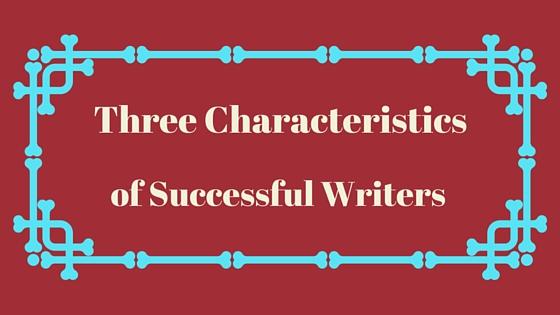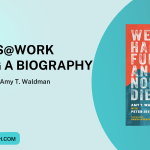Three Characteristics of Successful Writers by Rochelle Melander
October 20, 2015
Note From Rochelle
Dear Writers,
Are you ready to Write-A-Thon? National Novel Writing Month starts in just 11 days (yikes!). If you need help, my book Write-A-Thon can support you in planning your project, creating a writing habit that works, and keeping your butt in the chair.
Today’s tip takes explores three characteristics of successful writers.
Happy Writing! Rochelle, the Write Now! Coach
Three Characteristics of Successful Writers by Rochelle Melander
Two weeks ago, I told you about a writing exercise that could double your success. I asked you to list the characteristics of successful writers. As I wrote, I discovered that some of the things people had teased me about, dissed me for, found annoying about me…well, these were the very traits that made me a successful writer.
Last week, I had a sort of children’s book writing immersion experience. I attended a talk by Brian Selznick on Monday night at Alverno College. I took multiple writing days to work on writing projects. And this past weekend, I participated in Wisconsin’s Society of Children’s Book Writer’s and Illustrators (SCBWI) conference in Oconomowoc. After all of this, I could provide you with a list of more than a hundred characteristics of successful writers. I’ll settle for three. Here are three traits of successful writers:
1. Successful writers are fueled by passion.
 At an event hosted by Boswell Book Company and Scholastic, Brian Selznick spoke of his love for the movie, A Trip to the Moon by filmmaker Georges Méliès. For over ten years, Selznick nurtured his passion for Méliès’s art with the idea of someday writing about him. He read books, watched movies, and turned over the problem in his mind until he found a story he could tell.
At an event hosted by Boswell Book Company and Scholastic, Brian Selznick spoke of his love for the movie, A Trip to the Moon by filmmaker Georges Méliès. For over ten years, Selznick nurtured his passion for Méliès’s art with the idea of someday writing about him. He read books, watched movies, and turned over the problem in his mind until he found a story he could tell.
Here’s what Raymond Chandler had to say about passion: Technique alone is never enough. You have to have passion. Technique alone is just an embroidered pot holder.
Try this: Think about the times in your life when you got really excited about an idea, event, or story. Maybe you got so passionate that someone said, “Calm down.” Or perhaps you apologized for going on and on about a topic. Jot down these ideas and stories and pay attention to the ones that make you feel alive.
2. Successful writers ask questions.
 At the SCBWI conference, multiple writers reminded us to ask questions. Many writers ask a question once, stick with the first answer that pops into our head, and write. But the best stories come from repeatedly asking “Why?” and “What if?” and “How come?” until we find magic.
At the SCBWI conference, multiple writers reminded us to ask questions. Many writers ask a question once, stick with the first answer that pops into our head, and write. But the best stories come from repeatedly asking “Why?” and “What if?” and “How come?” until we find magic.
William Faulkner said it this way, The most important thing is insight, that is … curiosity to wonder, to mull, and to muse why it is that man does what he does.
Try this: Remind yourself of the times that you asked so many questions, your friends or parents told you to stop. Got that feeling? That’s the kind of tenacity I want you to bring to this exercise. (A form of this exercise is found in Write-A-Thon, p. 51.)
Take an idea you’re stuck on or need to explore further and question it. Maybe you’re fascinated by resiliency but you’re not sure about how to explore the topic. Or perhaps you have no idea what the characters in your current story need to do next. Choose a question (Why? What if? How?). Set your timer for 10 minutes and answer the question in as many crazy ways as you can. (Pro Tip: Bruce Coville talked about a similar exercise at the conference—and said that the best answers come at the end of the brainstorming session. So feel free to keep writing after the timer buzzes.)
3. Successful writers persist.
Every speaker at the SCBWI conference told us to persist at researching, writing, revising, or submitting. A few weeks ago, I set aside a day to plot the rest of my novel. After hours of making notes, I still had no idea what to do next. I tried again a few days later and came up with the same result: zilch. Between wondering if I had enough talent and worrying that I might have early onset dementia, I decided to try one more time. And guess what? I made progress.
Successful writers write more than they talk or post about writing. Whether it means getting up early, staying up late, or writing in short spurts throughout the day, they do it. When their friends say, “That seems like a stupid idea” or “Why are you still working on that?”—they ignore them and carve out more time to write. When the work is done, they submit. When the story gets rejected, they submit again. When the editor asks for changes, they make them. When no one notices the story, they write another one. And the cycle begins again. Writers persist.
Try this: Consider when you tend to get stuck or give up. Is it during the planning stage, in the middle of the writing, or when it comes to pitching? Once you know when you get stuck, brainstorm a list of possible solutions for moving forward. (Hint: It might help to try the exercise in #2 above to help you blast through the block.)
 Bonus tip: Successful writers make time to write. I created my Write Now! Coach tagline— Where maybe someday becomes Write Now! —because I meet so many writers who delay their work until they get more education, become more confident, and have more time. Don’t wait, writers. Write. As ― Clarissa Pinkola Estés wrote: The most important thing is to hold on, hold out, for your creative life, for your solitude, for your time to be and do, for your very life.
Bonus tip: Successful writers make time to write. I created my Write Now! Coach tagline— Where maybe someday becomes Write Now! —because I meet so many writers who delay their work until they get more education, become more confident, and have more time. Don’t wait, writers. Write. As ― Clarissa Pinkola Estés wrote: The most important thing is to hold on, hold out, for your creative life, for your solitude, for your time to be and do, for your very life.

















